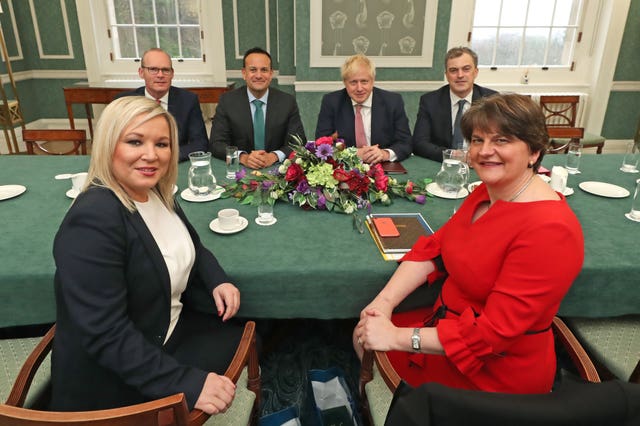As the start of the 2020 General Election campaign gets under way, two major issues are expected to dominate political battle.
Fine Gael will have to defend their stance and performance on the state of the health service and the worst-ever housing crisis to hit Ireland.
Last week saw record-breaking levels of people on trolleys in hospitals across the country.
Overcrowding at hospitals has hit peak levels, particularly at University Hospital Limerick which has been adversely effected by patients waiting on beds.

While the Government narrowly won the last vote of no confidence in Housing Minister Eoghan Murphy, they may find it more difficult while facing voters on the street.
Last year the number of homeless people in Ireland reached more than 10,000 for the first time.
The latest figures show there are 10,448 people homeless in Ireland – some 6,696 adults and 3,752 children.
This is a rise of more than 500 compared to last year’s figures.
Before polling day, the Fine Gael candidates will also have to defend the party’s handling of healthcare.
We’ve made some good progress since I’ve become Taoiseach. But I know it’s not enough, and we want to do much more. @FineGael has the team, the track record and the plans to build a future we can all look forward to.#LookForward pic.twitter.com/Tox3EBxHVm
— Leo Varadkar (@LeoVaradkar) January 14, 2020
Simon Harris was due to face a motion of no confidence by the Rural Independent Group.
A number of TDs indicated they would not back the government, meaning Leo Varadkar’s party would have potentially lost the vote.
During what will be a tough campaign, Fine Gael is expected to play up its success on how it handled the difficult issues surrounding Brexit, particularly in keeping the Irish border open.
The long and laborious Brexit negotiations in Brussels have dominated political proceedings in the Republic of Ireland over the last number of years.
The party is also expected to capitalise on the state of the economy, jobs, living wages and falling poverty.

According to the polls, it’s a two-horse race between Mr Varadkar and Fianna Fail leader Micheal Martin to win.
Fianna Fail will also face questions about the controversy surrounding the ‘vote-gate’ scandal in the Dail (Irish parliament).
Four of Fianna Fail’s front-bench TDs were forced to apologise after it was revealed they had voted on a colleague’s behalf last year.
Fianna Fail was also in government during the economic crash up until 2011, something Fine Gael TDs and others often referred to.






